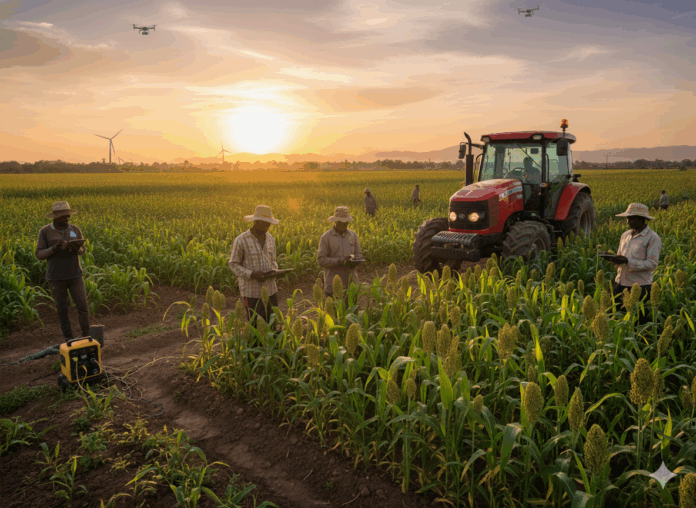The Bill & Melinda Gates Foundation has announced a $1.4-billion commitment to help smallholder farmers across sub-Saharan Africa and South Asia adapt to increasingly extreme weather conditions.
The investment is spread over the next four years, targeting technologies that strengthen food systems and protect livelihoods at the frontline of climate change.
The Foundation reports that the funds will scale up access to climate-resilient crops, digital advisory tools, and land-restoration initiatives. The focus is on farmers working modest plots of land (often less than two hectares) who produce much of the world’s food yet remain the least equipped to cope with drought, heat, and erratic rainfall.
Across sub-Saharan Africa, more than 60 percent of the population depends on smallholder farming for income. Yet, climate-related shocks cut yields by up to 30 percent in drought years, according to the UN’s Food and Agriculture Organization (FAO). Recent analysis by Climate Action estimates that the world’s smallholder farmers require approximately $443 billion per year to adapt to climate change. In sub-Saharan Africa alone, adaptation needs for smallholders have been estimated at around $170 billion annually.
Despite being among the world’s lowest emitters, African farmers bear the brunt of climate volatility. Yet only 2 percent of global climate finance reaches them directly, according to OECD data. By focusing on adaptation rather than mitigation, the Gates Foundation is attempting to close this financing gap and move the discussion from climate pledges to practical, on-the-ground resilience.
The Foundation said the funds will be channelled through existing agricultural innovation networks, including the Consultative Group for International Agricultural Research (CGIAR), national research agencies, and regional climate data hubs. About $600 million is earmarked for scalable digital platforms, while the remainder supports seed innovation and land-restoration projects.
Foundation co-chair Bill Gates said the goal is to “help farmers do more than survive the climate crisis, they should be able to thrive in spite of it.” He added that adaptation finance must “move at the speed of the climate, not the pace of bureaucracy.”
Current pilot programmes already underway in Kenya, Tanzania, Malawi, Zambia, and India will be expanded under the plan. Examples include a partnership between TomorrowNow and Kenya Agricultural and Livestock Research Organization (KALRO) that provides hyper-local weather alerts to over five million farmers in Kenya.
Digital advisory platforms, precision-weather tools, and regenerative soil-health programmes could offer valuable support to smallholders navigating erratic climate cycles. For African policymakers and research agencies, aligning with such global initiatives could unlock co-funding opportunities and technical partnerships in the years ahead.
Analysts note that while $1.4-billion is significant, its long-term success will depend on local partnerships and governance structures that ensure equitable access for rural communities. Implementation through regional research institutions and public-private collaborations will be key.
The coming months are expected to reveal a clearer country allocation and project pipeline, with the Foundation likely to release regional implementation details before COP30. While carbon reduction remains central to global policy, initiatives like this are reframing the conversation around human resilience by recognising that survival and sustainability are not only about reducing emissions but also strengthening food security.




